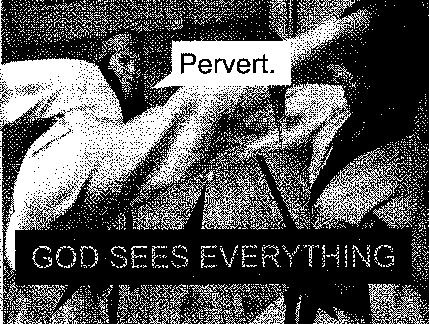Atheist vs. Theist

On the Existence of Agnosticism
Submitted by Presuppositionalist on May 21, 2009 - 5:08am.The standard position on RRS is as follows:
Either you believe in God or you do not. If you do, you are a theist. If you don't, you are an a-theist. So there's no room for agnosticism. Agnosticism is actually a position about whether we can know God exists. If you think we can't know whether God exists with certainty, then you are an agnostic. If you think we can, you are a gnostic.
In this division, agnostic atheists and agnostic theists must believe something they do not believe they can know. But that is an odd thing to force on someone. A person could think that he will only have some belief in theism and some belief in atheism, because he does not think that it is possible to be sure either way. The RRS has artificially divided the agnostic's knowledge from his beliefs. They are saying that we may gather the evidence as carefully as we want, and place it with cautious precision on both ends of the scale - but then we have to SLAM down one side or the other. There is no room here for degrees of certainty, which is a serious flaw if this scale is going to be used to chart the positions people take on a subject where lots of people have very little certainty at all.
Putting my views of Religion and Society to the test.
Submitted by Cpt_pineapple on May 19, 2009 - 3:38pm.In my last topic, I ragged on others for not testing their arguments in favour of their view on religion and society.
In light of this I have decided to post a rather shortened version of mine.
I propose, that using basic psychology that we can determine that it is rather likely that the societal ills are the driving force behind religion rather than vice-versa.
It is rather elementry that people derive their own views on religion based on experience, society etc...
We should thus expect that people in a place with societal ills, would have different religion than those that do not. However, if I am wrong, we should see sociatal ills regardless of their views on religion.
I came across this study:
http://moses.creighton.edu/JRS/pdf/2006-7.pdf
[wow it has numbers! imagine that!]
relatively secular nations do not have lower homicide rates than nations where people accept
God and Heaven, but do not embrace their malevolent counterparts, the Devil and Hell. Collective
beliefs suggesting a relatively benevolent religious cosmos are negatively correlated with homicide
when included in a regression analysis with more malevolent, dualist dimensions of the religious
cosmos.
Here's a relativly simple explanation:
greek word ''shall"
Submitted by faithnomore on May 19, 2009 - 2:32pm.Does anyone know what Greek word was used for "shall" in Mark chapter 16, it's meaning and where I can go to get it's meaning? I could not find it in Strong's. I have been debating Bible passages on another site with christians who keep referring to the Hebrew and Greek. I want to make sure "shall" actually means shall before I point out how Christians are suppose to have the signs in Mark 16:16-20 follow them. Thanks to anyone who can help

Just because I can
Submitted by Tapey on May 17, 2009 - 2:13pm.For some reason people got upset about some these in south africa a while back.



- Login to post comments

Fundamentalism, in case you don't have a dictionary
Submitted by Hambydammit on May 17, 2009 - 12:40pm.Fundamentalism refers to a belief in, and strict adherence to a set of basic principles (often religious in nature), sometimes as a reaction to perceived
A gift for Clockcat
Submitted by BostonRedSox on May 17, 2009 - 11:33am.Maybe our very own Kelly will help UN-gay you:
{MOD EDIT: Links removed due to T.O.S. violation}
You were warned once. Now you're banned. Better luck next sock puppet.
The Trouble with Atheism
Submitted by OrdinaryClay on May 16, 2009 - 5:19pm.Enjoy. This is a playlist so all the clips will play sequentially.
http://www.youtube.com/watch?v=i20vLIgBt4M&feature=PlayList&p=98CBEEEC66058B7E&index=0&playnext=1
Religion in public policy
Submitted by BostonRedSox on May 16, 2009 - 1:05pm.I'm just curious. Because quite honestly, there is really nothing else for atheists to bitch about besides religious views being made into laws. Things like terrorist attacks are isolated incidents and the crimes of religion like the Salem Witch Trials happened many years ago and there's no real chance of that happening again today. Moreover, many of the wars that have supposedly been in the name of religion actually had less to do with religion and more to do with property. So you really can't indict religion today for these reasons.
My question is: Exactly which laws in effect today are directly based on religious views? The only ones that I can think of are laws against homosexual marriages and these are only state laws, not federal laws.
By the way, if you are going to respond, you need to give me a citation of the specific statute. Otherwise, I am going to assume that you are just making it up.



